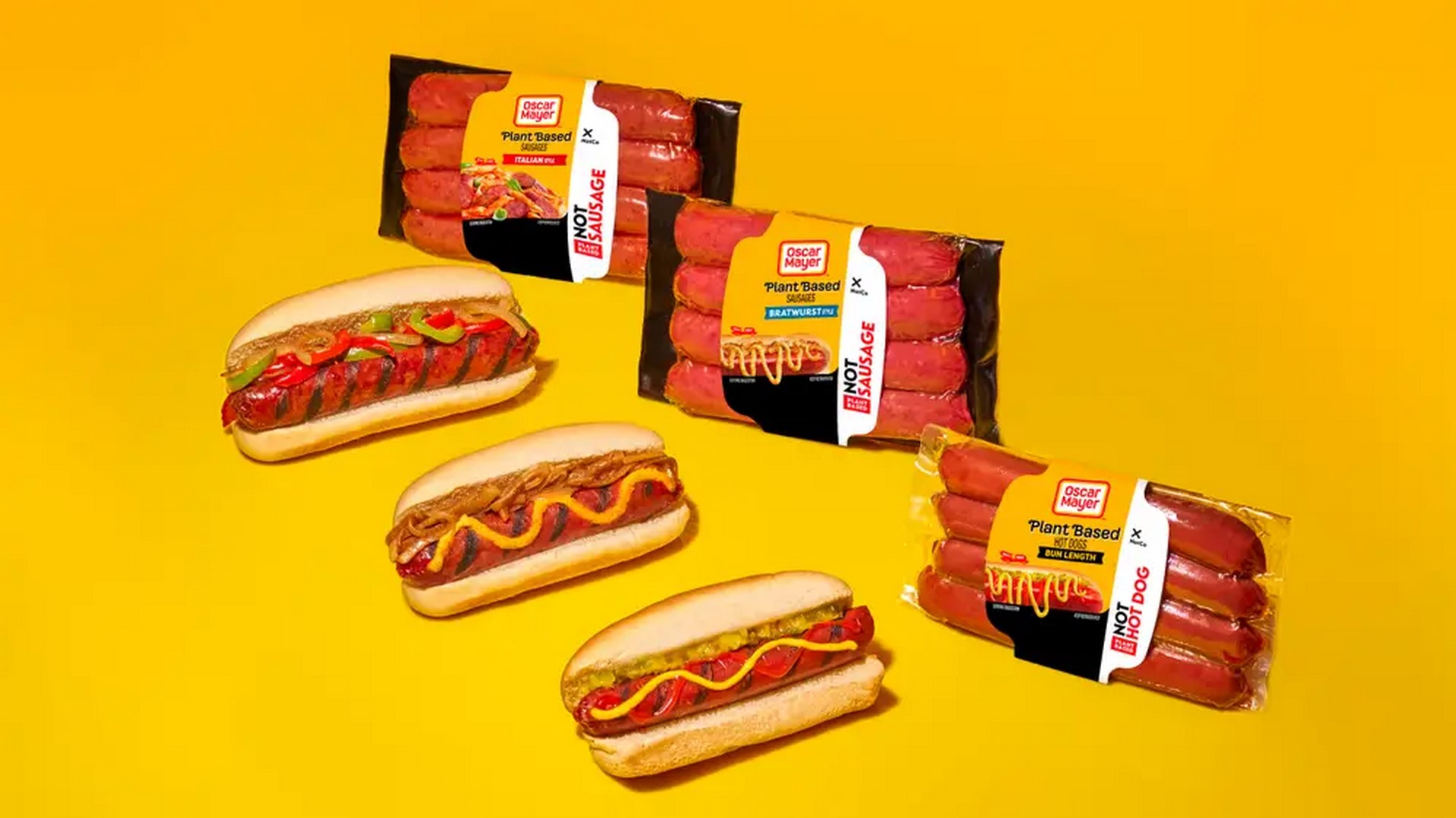Oscar Mayer Ventures into Plant-Based Meat Market

Premium Pricing for Vegan Alternatives
Oscar Mayer is set to introduce plant-based hot dogs and sausages in the US market later this year, but opting for the vegan option will come at a cost. According to Bloomberg, these meatless alternatives are expected to be priced 40% to 60% higher than the brand’s conventional meat products.
Pricing and Product Offerings
The suggested retail price for a four-pack of bun-length Oscar Mayer NotHotDogs is $5.99, as per a spokesperson for Kraft Heinz Not Company. In contrast, an eight-pack of traditional meat-based hot dogs was available online for $2.84 to $7.99 in the Washington, DC, area. Similarly, Oscar Mayer NotSausages, available in Bratwurst and Italian flavors, are priced at $7.99 for a four-pack.
 Collaboration and Technological Innovation
Collaboration and Technological Innovation
These plant-based offerings are a result of a collaboration between Kraft Heinz, the parent company of Oscar Mayer, and NotCo, a Chilean plant-based food company supported by Amazon’s founder, Jeff Bezos. Lucho Lopez-May, the CEO of the joint venture, hailed the development of non-meat hot dogs as a significant technological achievement.
Market Dynamics and Challenges
The launch of plant-based meat alternatives occurs amidst declining sales in the non-animal-meat sector, which experienced heightened demand during the initial phase of the pandemic in 2020. Despite advancements in recipe formulation and manufacturing efficiency by companies like Beyond Meat and Impossible Foods, the cost of replicating the taste and texture of meat remains a challenge.
Cost Considerations and Consumer Behavior
While plant-based proteins like soy are inherently cheaper than animal meats, the additional ingredients required to mimic the flavor and structure of meat contribute significantly to manufacturing costs. Moreover, food inflation and consumer preference for more affordable protein sources have impacted plant-based meat sales.
Efforts to Bridge Price Gap
Efforts to narrow the price gap between plant-based and conventional meat products have been ongoing. Beyond Meat, for instance, aimed to achieve price parity with its animal-based counterparts, although recent challenges in reducing prices have emerged. Despite attempts to target mainstream consumers, Beyond Meat faces sales declines and the need to raise prices.
Conclusion
Oscar Mayer’s foray into the plant-based meat market reflects ongoing shifts in consumer preferences and the food industry’s response to evolving demands. As companies navigate pricing strategies and technological advancements, the future of plant-based alternatives remains subject to market dynamics and consumer behavior.











